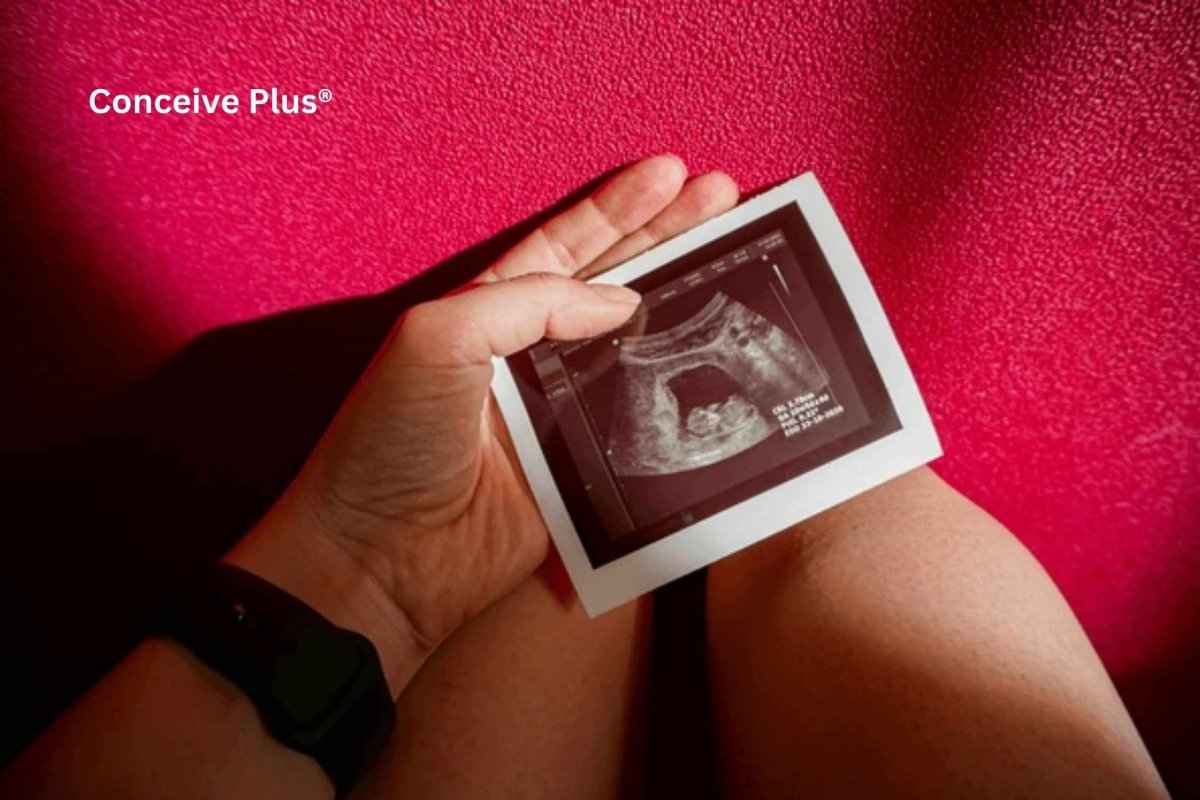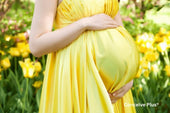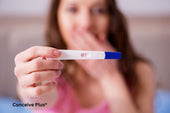What to Do When I Can Get Pregnant but Keep Miscarrying

I can get pregnant but keep miscarrying. It sounds so frustrating and emotional. Many couples talk about how excited they get, only to face an abrupt loss. Some individuals endure one or even 2 miscarriages in a row while feeling clueless about the root cause. Others might encounter 3 miscarriages in a row and wonder whether they will ever hold a baby in their arms. Sometimes, the answer lies in medical tests or adjusting lifestyles, but the journey can be complicated. Below is helpful information to share.
Sorting Out the Confusion Behind Multiple Losses
Pregnancy can be quite complex. Some families with two miscarriages in a row manage to conceive again naturally, yet repeated losses can still be tough to handle. The reason behind these losses often vary. Genes, hormones, the uterus shape, or even factors like stress and diet might play a role. It is a bit like a puzzle, gathering clues from doctor’s visits, blood tests, and medical history, hoping to see a clearer picture.
For anyone uncertain about what to do after 2 miscarriages in a row, a thorough checkup might reveal hidden thyroid issues, undiagnosed immune disorders, or other causes [1]. Even if test results come back normal, that does not necessarily pregnancy mean a child is out of reach; it may simply require time to discover an effective approach.
Top Tip: If test results are inconclusive, consider checking for clotting disorders or subtle hormone imbalances that might have been missed.
Genetic Problems and Sperm Health
Many assume that miscarriages only happen due to issues in the woman’s body, but that is not always correct. Chromosomal irregularities can stem from either partner [2]. A seemingly harmless detail, like a balanced translocation, can be the culprit. If the embryo receives extra or missing genetic material, it can end prematurely. Sperm health matters too because high DNA fragmentation in sperm may increase miscarriage risk, even if a standard semen analysis looks fine.
This scenario often leads to discussions with a genetic counselor. Karyotyping can uncover potential chromosome swaps. In some cases, preimplantation genetic testing of embryos may be an option, particularly with recurring losses tied to abnormal chromosomes [3].
Top Tip: If the partner’s sperm count is normal but miscarriages keep occurring, advanced sperm DNA testing may offer essential insights often overlooked.
The Role of Uterine Structure
A “strange uterus” can obstruct successful implantation. A septate uterus, for example, has a wall-like tissue dividing it partially or completely. Fibroids or polyps may also appear and hinder a pregnancy. For those dealing with how to stay pregnant after multiple miscarriages, structural abnormalities might be directly linked. Saline ultrasounds or X-ray tests can detect scarring or growths, and removing them sometimes helps. Not all findings, though, cause problems; some are minor.
There is also the possibility of an incompetent cervix, which opens too early in pregnancy and leads to second-trimester losses. A cervical stitch or hormone medication could be the remedy [4]. Many never realize that an internal structural concern might be causing the losses.
Top Tip: Ask a specialist about the size and location of fibroids or polyps if they are discovered. Not all growths contribute to miscarriage risk, so determining which ones matter is key.
Possible Endocrine Imbalances
Hormones play a massive role in pregnancy. One misalignment in hormone production can trigger major issues. Hypothyroidism (underactive thyroid) or hyperthyroidism (overactive thyroid) can raise miscarriage risk. Conditions like Polycystic Ovary Syndrome (PCOS) also disrupt ovulation. Insulin resistance appears linked to more frequent pregnancy losses too [5]. A simple blood test often confirms or rules out these issues.
Anyone dealing with I can get pregnant but keep miscarrying will often have a thyroid evaluation first. TSH, T3, T4, or thyroid antibodies might be measured. Blood sugar levels could also be checked for diabetes or prediabetes. Medication and dietary changes might help if the results show an imbalance.
Top Tip: Unpredictable cycles might signal a hormone imbalance; mentioning them to a doctor is recommended, especially if they persist over many months.
Immune and Blood Clotting Disorders
Autoimmune conditions can occasionally cause repeated loss. Antiphospholipid syndrome, for example, results in “sticky blood” that can disrupt blood flow to the fetus. This sometimes explains recurring early miscarriages, and low-dose aspirin or heparin injections may be beneficial. Testing is vital, because not every person with multiple miscarriages has a clotting problem [6].
While some consider using blood thinners “just to be safe,” confirming the actual disorder is a must. Incorrect usage has potential side effects. Some explore immunological factors, like natural killer cells, though the evidence remains mixed on particular therapies.
Top Tip: For immune or clotting tests, ensure they are performed at a trustworthy lab, since minor variations in results can confuse the diagnosis.
Nutritional Factors that Matter
Fertility and nutrition often go hand in hand when it comes to achieving a successful pregnancy after 2 miscarriages in a row. Folic Acid is widely known for lowering neural tube defect risks. Myo-Inositol has been cited for improving insulin resistance and egg quality, especially with PCOS. CoQ10 is believed to bolster egg development and reduce oxidative stress. Calcium and Magnesium appear frequently in fertility supplements, aiming to assist muscle function and cramp reduction.
Zinc commonly surfaces for men, supporting healthy sperm production. L-Arginine is occasionally recommended for enhancing uterine blood flow, while L-Carnitine may improve sperm motility [7]. Some formulas also include Maca root or Ginseng, which are herbal elements found in certain fertility blends. Others prefer a whole-food diet rich in leafy vegetables, fruits, grains, and lean proteins to meet nutritional needs.
Top Tip: Watch the recommended daily allowances, because too much of certain vitamins—like Iron or Vitamin A—can be detrimental.
The Fertility-Friendly Lubricant Angle
Standard lubricants can sometimes hinder sperm mobility, which might matter for those experiencing I can get pregnant but keep miscarrying or timing intercourse precisely. I got pregnant using fertility-safe lubricants, which are formulated with sperm in mind, often including Calcium or Magnesium ions to preserve the right environment for sperm [8]. These products do not guarantee conception but help couples who need extra moisture avoid harming sperm.
Top Tip: Dryness issues make it important to avoid lubricants with strong chemicals or fragrances that may reduce sperm viability. Labels marked “fertility-friendly” are often best.
Lifestyle Changes and Stress Factors
Lifestyle can significantly influence pregnancy outcomes. Smoking is known to up miscarriage risks. Alcohol and high caffeine intake can harm pregnancy attempts. Keeping such behaviors in check may help sustain a pregnancy. Achieving a healthy body weight is also beneficial because obesity and being underweight both affect hormone regulation [9].
Stress is another factor, frequently heightened by repeated miscarriages. People searching for how to stay pregnant after multiple miscarriages can be overwhelmed by anxiety. Tactics like gentle workouts, mindful breathing, or therapy sessions may alleviate that burden. Talking to others with similar experiences can also help.
Top Tip: Tracking daily habits—sleep, food, stress levels—in a small notebook can identify patterns that hinder or help.
Approaching Professional Support
At times, families experience two miscarriages in a row or go past that point into 3 miscarriages in a row. When this happens, seeing a fertility specialist might be the best route. A reproductive endocrinologist can provide advanced ultrasounds, genetic screening, or propose fertility procedures like IVF with genetic testing. A plan might be as straightforward as controlling thyroid levels, or as detailed as scheduling minor surgery to correct a uterine anomaly.
In some cases, all tests appear normal, and repeated losses are deemed “unexplained.” This can be very frustrating. Nonetheless, many couples eventually carry a baby to term with closer prenatal monitoring. Additional checks on hormone levels or prescribing progesterone are sometimes helpful [10].
Top Tip: Seeking counseling or mental health support can be beneficial when repeat losses take a heavy emotional toll.
Key Takeaways Toward Hope
Saying I can get pregnant but keep miscarrying can feel overwhelming. Genetic details, hormone problems, or anatomical concerns might be involved, yet solutions are available. Thorough evaluations are recommended if there are two miscarriages in a row or more. Tests can uncover conditions like thyroid disorders, immune problems, or nutritional gaps [11]. If everything turns out normal, it is still possible to have a healthy pregnancy. Early monitoring can help reassure and detect any issues.
Balanced nutrition often includes fertility-friendly supplements that list Folic Acid, Myo-Inositol, or CoQ10. A sperm-compatible lubricant can also help when dryness is an issue. Even if no cause is identified, many people eventually achieve a successful pregnancy after 2 miscarriages in a row. Ongoing discussions with healthcare professionals and a focus on healthy lifestyle factors may smooth the path to parenthood. Every person’s journey differs, and there is hope for a happier outcome.
The Bottom Line
Facing I can get pregnant but keep miscarrying introduces immense ups and downs. However, knowledge, comprehensive testing, and small changes often shift the outlook. Genetic checks may reveal hidden abnormalities, while an identified hormone imbalance could be managed through medication. Reviewing diet or investigating fibroids or polyps might also make a difference. Open dialogue with medical providers, a focus on key nutrients, and attention to emotional well-being are all helpful. The combination of proper clinical support and consistent self-care measures offers genuine hope for those ready to welcome a new baby.
FAQs
How soon can pregnancy be attempted after a miscarriage?
Many recommend waiting two weeks to lower infection risk, but trying sooner can be acceptable for some who feel emotionally and physically prepared. A doctor’s guidance is always best.
Is another loss guaranteed after 2 miscarriages in a row?
Not necessarily. A fair number of individuals have a successful pregnancy next time. Investigating underlying causes might lower future risks.
Does a fertility-friendly lubricant actually help in conceiving?
It can assist if dryness is a problem or if standard lubricants hamper sperm motility. It is not a universal solution, but it helps remove at least one potential obstacle.
Is advanced genetic testing essential after only one miscarriage?
In-depth testing is often reserved for those with repeated losses. However, family history or personal preference can affect this decision.
Can diet alone solve how to stay pregnant after multiple miscarriages?
Diet is a key factor, yet it is generally one piece of the puzzle. Combining balanced nutrition with medical checkups provides a stronger overall plan.
Citations
- Practice Committee of the American Society for Reproductive Medicine (2012). Evaluation and treatment of recurrent pregnancy loss: a committee opinion. Fertility and sterility. Available at: https://pubmed.ncbi.nlm.nih.gov/22835448/
- Stephenson, M., & Kutteh, W. (2007). Evaluation and management of recurrent early pregnancy loss. Clinical obstetrics and gynecology. Available at: https://pubmed.ncbi.nlm.nih.gov/17304030/
- Rubio, C., Bellver, J., Rodrigo, L., Castillón, G., Guillén, A., Vidal, C., Giles, J., Ferrando, M., Cabanillas, S., Remohí, J., Pellicer, A., & Simón, C. (2017). In vitro fertilization with preimplantation genetic diagnosis for aneuploidies in advanced maternal age: a randomized, controlled study. Fertility and sterility. Available at: https://pubmed.ncbi.nlm.nih.gov/28433371/
- Drakeley, A. J., Roberts, D., & Alfirevic, Z. (2003). Cervical stitch (cerclage) for preventing pregnancy loss in women. The Cochrane database of systematic reviews. Available at: https://pubmed.ncbi.nlm.nih.gov/12535466/
- Palomba, S., de Wilde, M. A., Falbo, A., Koster, M. P., La Sala, G. B., & Fauser, B. C. (2015). Pregnancy complications in women with polycystic ovary syndrome. Human reproduction update. Available at: https://pubmed.ncbi.nlm.nih.gov/26117684/
- Empson, M., Lassere, M., Craig, J. C., & Scott, J. R. (2002). Recurrent pregnancy loss with antiphospholipid antibody: a systematic review of therapeutic trials. Obstetrics and gynecology. Available at: https://pubmed.ncbi.nlm.nih.gov/11777524/
- Agarwal, A., & Said, T. M. (2004). Carnitines and male infertility. Reproductive biomedicine online. Available at: https://pubmed.ncbi.nlm.nih.gov/15149558/
- Mackenzie, S. C., & Gellatly, S. A. (2019). Vaginal lubricants in the couple trying-to-conceive: Assessing healthcare professional recommendations and effect on in vitro sperm function. PloS one. Available at: https://pmc.ncbi.nlm.nih.gov/articles/PMC6516666/
- Boots, C., & Stephenson, M. D. (2011). Does obesity increase the risk of miscarriage in spontaneous conception: a systematic review. Seminars in reproductive medicine. Available at: https://pubmed.ncbi.nlm.nih.gov/22161463/
- Coomarasamy, A., Harb, H. M., Devall, A. J., Cheed, V., Roberts, T. E., Goranitis, I., Ogwulu, C. B., Williams, H. M., Gallos, I. D., Eapen, A., Daniels, J. P., Ahmed, A., Bender-Atik, R., Bhatia, K., Bottomley, C., Brewin, J., Choudhary, M., Crosfill, F., Deb, S., Duncan, W. C., … Middleton, L. J. (2020). Progesterone to prevent miscarriage in women with early pregnancy bleeding: the PRISM RCT. Health technology assessment (Winchester, England). Available at: https://pubmed.ncbi.nlm.nih.gov/32609084/
- Jaslow, C. R., Carney, J. L., & Kutteh, W. H. (2010). Diagnostic factors identified in 1020 women with two versus three or more recurrent pregnancy losses. Fertility and sterility. Available at: https://pubmed.ncbi.nlm.nih.gov/19338986/



















